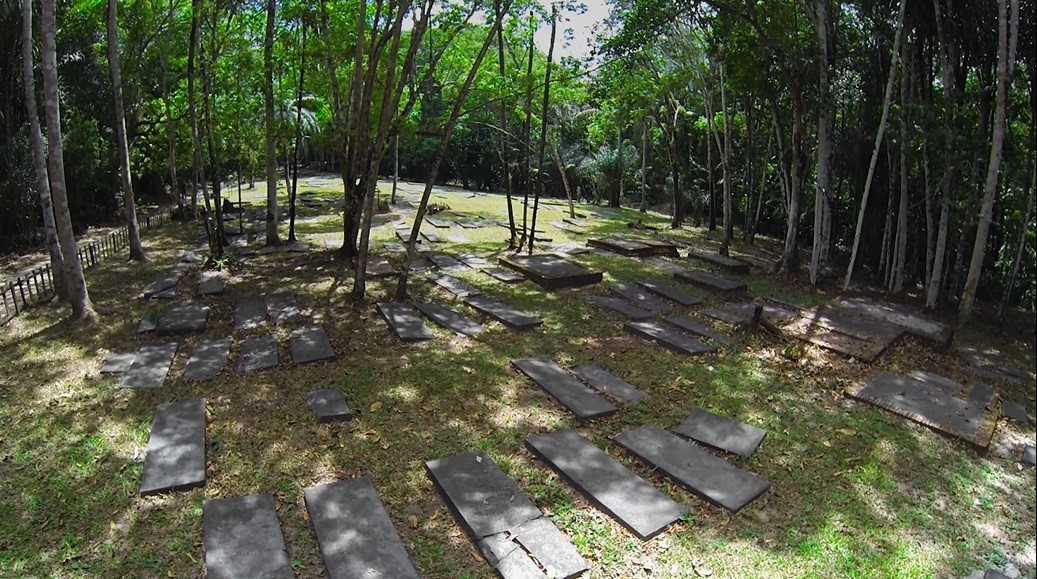Have you ever wondered about the rich history of Jewish communities around the world? Well, let me take you on a journey to Suriname’s Jodensavanne, where we’ll uncover a fascinating chapter of Jewish history. In this article, you’ll learn about the origins of this unique settlement, its rise to prominence, and its unfortunate decline. So, buckle up and get ready to discover the Jewish heritage of Suriname!
Suriname’s Jodensavanne is a place that carries immense historical significance. Located in the northeastern region of South America, this former Jewish settlement was established in the 17th century by Sephardic Jews fleeing persecution in Brazil. At its peak, Jodensavanne was a thriving community of hundreds of Jews, with a bustling economy and a vibrant cultural life. However, over time, the settlement faced numerous challenges, including conflicts with neighboring indigenous tribes and economic decline. Today, only the ruins of Jodensavanne’s synagogue and a few gravestones remain, serving as silent testaments to the once thriving Jewish community. In our next article, we’ll dive deeper into the fascinating details of Jodensavanne’s history and explore the efforts to preserve its legacy. So, stay tuned to learn more about this hidden gem of Jewish history in Suriname!
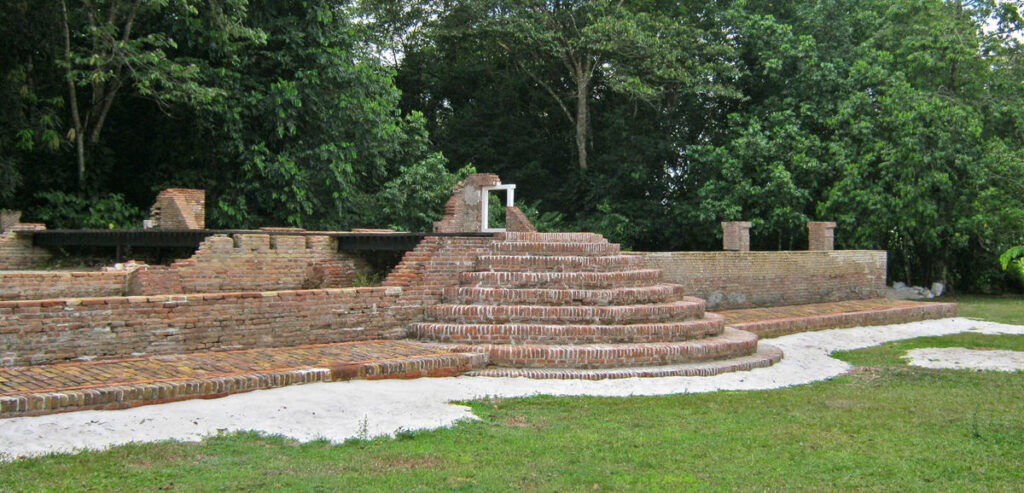
Introduction to Suriname’s Jodensavanne
Suriname’s Jodensavanne is an incredibly significant location that holds a rich history of Jewish heritage. This article will guide you through a journey of exploration, delving into the historical background, the importance to Jewish history, and the various aspects of life in the Jodensavanne. Additionally, we will discuss the impact of slavery on the community, its decline and destruction, and the subsequent rediscovery and restoration efforts. Finally, we will highlight the significance of the Jodensavanne in modern times and reflect on the preservation of Jewish heritage for future generations.
Exploring the Jodensavanne
Getting there
To embark on your journey to the Jodensavanne, you will need to head to Suriname, a small country on the northeastern coast of South America. The Jodensavanne is located approximately 50 kilometers south of the capital city, Paramaribo. The most convenient way to reach this historical site is by car or taxi, taking approximately one hour.
Visiting the ruins
Upon arrival at the Jodensavanne, you will be greeted by the magnificent ruins of what was once a thriving Jewish settlement. The remnants of synagogues, houses, and a cemetery serve as a reminder of the area’s vibrant past. It is important to approach the ruins with a sense of reverence, as they hold immense historical and cultural significance.
Key attractions
The Jodensavanne offers a myriad of attractions for visitors to explore. Among the key attractions are the ruins of the Neveh Shalom and Beracha Ve Shalom synagogues. These architectural marvels, although in a state of decay, provide a glimpse into the community’s religious practices and traditions. The synagogue walls, adorned with intricate Hebrew inscriptions, whisper stories of a bygone era.
Architecture of the synagogues
The architecture of the synagogues reflects the influence of both Spanish and Portuguese Jewish communities. The Neveh Shalom synagogue, constructed in the 17th century, showcases a unique blend of Sephardic and Ashkenazi architectural styles. The Beracha Ve Shalom synagogue, built in the 18th century, boasts a distinct wooden structure and displays traces of Dutch colonial influence.
Exploring the cemetery
A visit to the Jodensavanne would be incomplete without a walk through its historic cemetery. The gravestones, adorned with Hebrew inscriptions, tell stories of lives lived and lost. As you wander through the cemetery, pay homage to those who once formed a vibrant Jewish community in this remote part of the world.
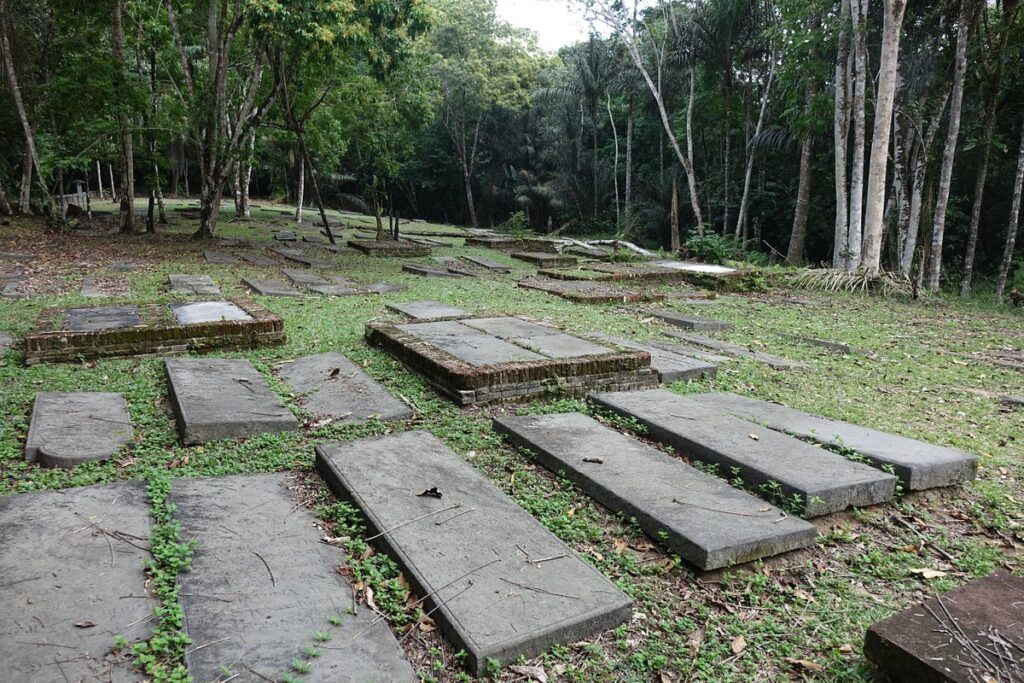
History of the Jodensavanne Settlement
Foundation of the settlement
The Jodensavanne settlement was established in the 17th century by a group of Jewish immigrants who fled persecution in Europe. Seeking a safe haven, they found refuge in Suriname, then a Dutch colony, and formed a tight-knit community in the savannah region. This settlement soon became a hub of Jewish life, attracting immigrants from various parts of Europe.
Development and growth
Over time, the Jodensavanne settlement flourished, growing in both population and economic prosperity. The Jewish community played a significant role in the development of Suriname’s agricultural industry, particularly in the cultivation of sugar cane and coffee. Their expertise and perseverance contributed to the colony’s economic success and boosted its reputation as a prosperous settlement.
Interactions with local communities
The Jewish community in the Jodensavanne maintained close ties with the local indigenous and Afro-Surinamese communities. Despite religious and cultural differences, they forged relationships based on mutual respect and cooperation. The Jodensavanne became a melting pot of diverse cultures, united by the pursuit of a better life in Suriname.
Life in the Jodensavanne
Community structure
The Jodensavanne community was tightly knit, with strong bonds based on shared faith and heritage. The settlement had its own social structure, with leaders known as Parnassim overseeing the religious and administrative affairs of the community. They ensured the preservation of Jewish traditions and customs, enabling the community to maintain its identity in a foreign land.
Religious practices and traditions
Religion played an integral role in the lives of the Jodensavanne inhabitants. The synagogues served as sacred spaces for prayer and worship, and religious ceremonies were conducted according to Jewish customs and traditions. The Sabbath and Jewish holidays were celebrated with great fervor, uniting the community in moments of joy and reflection.
Social and economic activities
Life in the Jodensavanne revolved around a variety of social and economic activities. The community engaged in trade and commerce, with many Jewish families owning businesses and plantations. Educational institutions, such as the Nassy-Ortiz School, provided a nurturing environment for learning and intellectual growth. Festivals and social gatherings brought the community together, fostering a sense of unity and belonging.

Impact of Slavery on the Jodensavanne
Enslaved communities
The Jodensavanne had a complex relationship with slavery, which was prevalent in Suriname during the colonial era. Enslaved Africans were brought to Suriname to work in the plantations and played a vital role in the economic success of the colony. The Jewish community, although generally opposed to slavery, owned plantations and relied on enslaved labor for their economic activities.
Influence on the Jewish community
The presence of slavery had a profound impact on the Jewish community in the Jodensavanne. Many Jewish plantation owners struggled to reconcile their religious beliefs with the harsh realities of slavery. Some Jewish individuals actively participated in the abolitionist movement, advocating for the rights and freedom of enslaved Africans.
Slave revolts and resistance
The Jodensavanne witnessed several slave revolts and acts of resistance throughout its history. Enslaved Africans, inspired by various uprisings in the region, staged rebellions against their oppressors. Although the Jewish community experienced some backlash during these periods of unrest, they also faced threats from the colonial authorities who feared the potential alliance between the enslaved Africans and the Jews.
Decline and Destruction of the Jodensavanne
Natural disasters
The Jodensavanne faced multiple natural disasters that brought about its decline and eventual destruction. Flooding, caused by changing river patterns, posed a significant challenge to the sustainability of the settlement. The periodic inundation of the area led to the deterioration of buildings and the displacement of the community.
End of Jewish settlement
As the natural disasters took their toll, the Jewish community gradually left the Jodensavanne in search of safer and more prosperous locations. By the late 18th century, the vibrant settlement had become a ghost town, with only a few individuals remaining to preserve the memories of a once-thriving community.
Abandonment and deterioration
In the following centuries, the Jodensavanne was left to deteriorate and fade into obscurity. The once-bustling streets turned into overgrown paths, and the synagogues and houses fell into disrepair. The ruins of the Jodensavanne, hidden in the dense jungle, became a testament to a forgotten chapter in Suriname’s history.
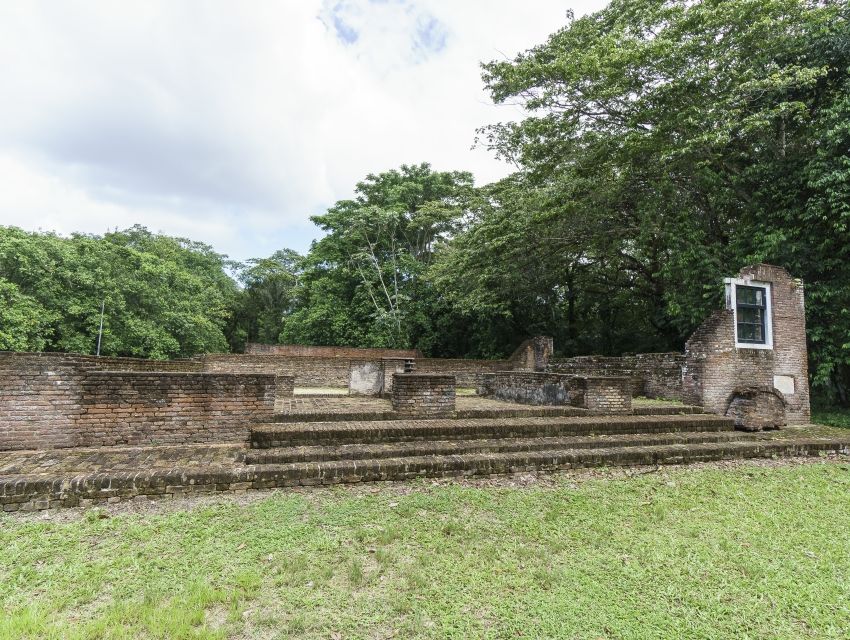
Rediscovery and Restoration Efforts
Rediscovering the Jodensavanne
The rediscovery of the Jodensavanne in the 20th century sparked interest and curiosity among historians and archaeologists. Efforts were made to uncover the buried history of the Jewish settlement and shed light on its significance. Rediscovery expeditions gradually unveiled the ruins and artifacts, allowing for a deeper understanding of the Jodensavanne’s past.
Archaeological excavations
Archaeological excavations in the Jodensavanne unearthed a treasure trove of artifacts, including pottery, coins, and religious items. These findings provided invaluable insights into the daily lives of the Jodensavanne inhabitants. The meticulous work of archaeologists helped piece together the fragments of history, breathing new life into the forgotten settlement.
Preservation and conservation initiatives
In recent years, preservation and conservation initiatives have been launched to safeguard the ruins of the Jodensavanne. Restoration efforts have been undertaken to stabilize the remaining structures and protect them from further deterioration. These initiatives aim to ensure that the story of the Jodensavanne continues to be told and that its legacy remains intact for future generations to explore and appreciate.
Significance of the Jodensavanne Today
Cultural and historical preservation
The Jodensavanne holds immense cultural and historical significance for Suriname and the wider Jewish community. It serves as a reminder of the resilience and contributions of the Jewish settlers to Surinamese society. The preservation of the ruins allows visitors to connect with the past and gain a deeper understanding of the diverse history of the region.
Tourism and educational opportunities
The Jodensavanne has gained recognition as a significant tourist attraction, drawing visitors from around the world who seek to learn about Suriname’s Jewish history. Educational institutions often organize field trips to the site, providing students with a firsthand experience of the country’s multicultural heritage. The Jodensavanne offers a unique opportunity to engage with history and promote cross-cultural understanding.
Symbol of diversity and tolerance
The Jodensavanne stands as a powerful symbol of diversity and religious tolerance. Despite the challenges and hardships faced by the Jewish community, they managed to build a thriving settlement and forge connections with other communities. The story of the Jodensavanne serves as a testament to the human spirit and the power of unity in the face of adversity.
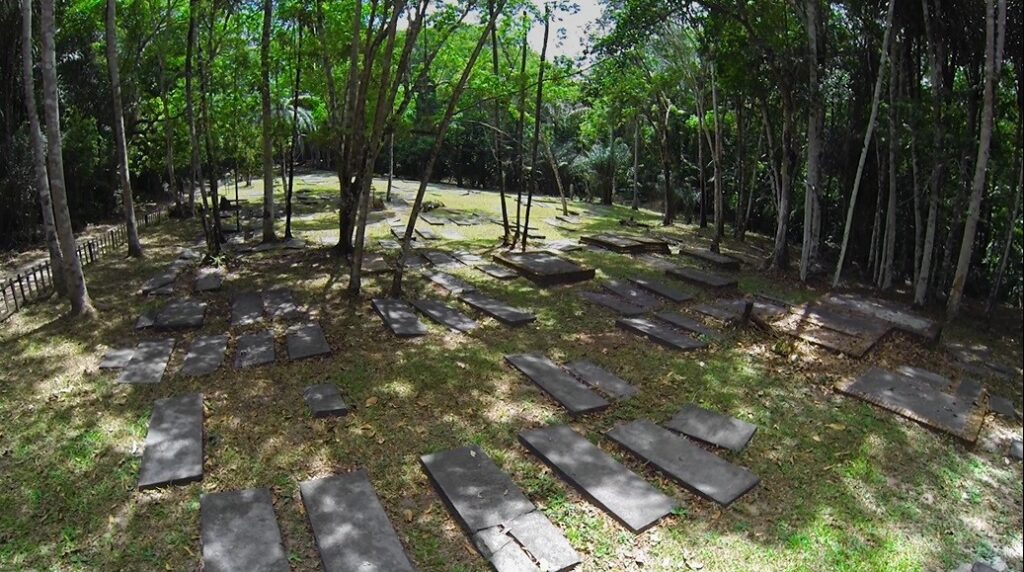
Unearthing Jewish History in Suriname
Exploring the Jewish heritage
Suriname’s Jewish heritage extends far beyond the Jodensavanne. The country is home to synagogues, cemeteries, and other sites that reflect the history and contributions of the Jewish community. Exploring these sites offers a deeper understanding of the cultural mosaic that is Suriname.
The story of Suriname’s Jewish community
Suriname’s Jewish community has a long and complex history, dating back to the 17th century. The Jewish settlers arrived in Suriname seeking religious freedom and economic opportunity. Their perseverance and resilience in the face of adversity shaped the country’s social, cultural, and economic landscape.
Contributions to Surinamese society
The Jewish community in Suriname made significant contributions to various aspects of society. They played a pivotal role in the cultivation of crops, introduced new farming techniques, and actively participated in commerce and trade. The Jewish community also contributed to the country’s intellectual and cultural life, establishing educational institutions and promoting the arts.
Challenges and Future Prospects
Preserving and protecting the site
Preserving the Jodensavanne and ensuring its protection from environmental factors remains a significant challenge. Ongoing efforts are needed to maintain the structures and prevent further deterioration. Collaboration between government bodies, local communities, and international organizations is crucial in safeguarding the site for future generations.
Promoting awareness and tourism
Raising awareness about the Jodensavanne and its historical significance is essential for its long-term preservation. Efforts should be made to promote the site as a tourist destination, encouraging both domestic and international visitors to explore its rich history. By attracting more visitors, the Jodensavanne can generate revenue that can be reinvested into conservation and educational initiatives.
Engaging the local Jewish community
Engaging the local Jewish community in the preservation and promotion of the Jodensavanne is vital to its sustainability. Collaboration with community leaders, organizations, and individuals will ensure that the heritage is valued and protected. Their involvement can bring a sense of ownership and pride, fostering a shared responsibility for preserving Suriname’s Jewish history.
Impressions and Reflections
Experiencing the Jodensavanne
A visit to the Jodensavanne is a powerful and thought-provoking experience. As you walk among the ruins, you can’t help but feel a sense of awe and admiration for the resilience of the Jewish community that once thrived in this remote corner of Suriname. The stories whispered by the weathered stones and the echoes of the past create a profound connection to history.
Personal reflections and observations
Seeing history come to life in the Jodensavanne triggers reflection on the universal human story of migration, survival, and overcoming adversity. It is a poignant reminder of the importance of cultural heritage and the values of tolerance, understanding, and unity. The Jodensavanne serves as a catalyst for personal introspection, urging us to learn from the past and build a more inclusive future.
Implications for Jewish history
The Jodensavanne holds a significant place in Jewish history, providing a glimpse into the experiences of a unique Jewish community in Suriname. The settlement serves as a testament to the strength and resilience of the Jewish people, who, despite hardship and challenges, managed to establish a thriving community in a distant land. The Jodensavanne contributes to the broader Jewish narrative by showcasing the diverse paths and experiences of Jewish communities around the world.
Conclusion
A visit to Suriname’s Jodensavanne is a journey that unearths the captivating history of the Jewish community in this remote part of South America. It provides a glimpse into the lives of the settlers who sought refuge and built a vibrant settlement in the face of adversity. The significance of the Jodensavanne extends far beyond its ruins, as it represents the enduring spirit of a community and serves as a powerful symbol of diversity and tolerance. By preserving and promoting this historical site, we honor the memory of the Jodensavanne and ensure that its legacy lives on for future generations to discover and appreciate.
